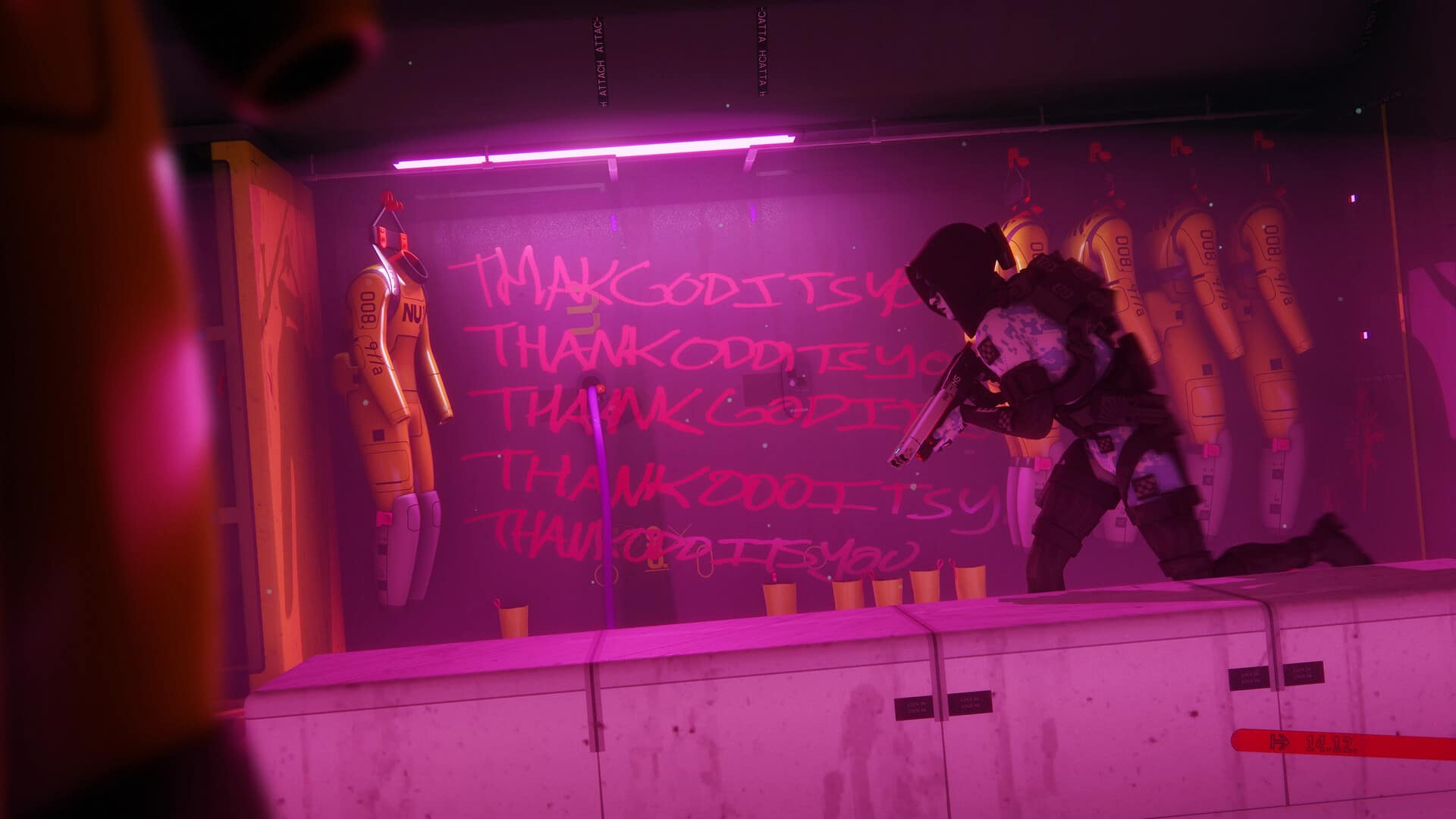Remedy Entertainment returns with "FBC: Firebreak," a cooperative multiplayer spin-off from their beloved title "Control," delivering quirky charm and engaging gameplay, yet stumbling significantly with its restrictive progression and repetitive content structure.
You have to hand it to Remedy: transitioning from the twisted psychological horror of Alan Wake 2 to a three-player first-person co-op shooter is quite the leap. "FBC: Firebreak" takes inspiration from the Wakeverse sibling "Control," reframing its eerie and intriguingly bizarre universe into one that thrives on comedic, chaotic multiplayer antics. While fans of Control might initially scratch their heads at this tonal pivot, Firebreak manages enough charisma and quirky charm to justify a visit to the infamous Oldest House.
In Firebreak, you're not stepping into the boots of a supernatural protagonist like Jesse Faden. Instead, players control volunteer office workers—affectionately known as Firebreakers—promoted prematurely to combat-readyfield agents. Tasked with confronting the Hiss invasion with makeshift weapons and questionable tools, the resulting gameplay feels suitably scrappy and unpredictable, though somewhat uneven.
Combat is both a highlight and a sore spot in Firebreak. Devoid of Jesse's psychic and physical prowess, your makeshift arsenal consists mostly of mundane firearms. Weapons, however, are disappointingly hit-or-miss. The shotgun and hunting rifle excel, offering a satisfying punch with every trigger pull, knocking back tougher foes and launching weaker targets into comical airborne routines. Conversely, the assault rifle and SMG are major disappointments, riddling enemies with bullets that feel as impactful as gently thrown marshmallows.
Central to Firebreak’s combat are Crisis Kits, the game’s unique player classes. These kits bring variety, offering distinct tools, deployables, and ultimate powers—Altered Augments borrowed straight from the FBC’s uncanny warehouse. Whether it's conjuring molten magma from water streams or deploying an aggressive, lightning-lassoed gnome with a dangerous fondness for electrocuting the closest target, these abilities are inventive, memorable, and genuinely impactful. Moments that require quick thinking and teamwork, like extinguishing teammates who've accidentally caught fire or strategically triggering elemental chain reactions, are standout highlights and can feel incredibly rewarding.
However, Firebreak noticeably misses the mark with progression structures and mission design. Players must endure an overly tedious, grinding unlocking process for even basic perks, enhanced weapons, and essential kit tools. XP tokens, gating upgrades behind tiers in an arbitrary menu, inevitably force you to invest in unwanted gear just to advance. Moreover, the game's deliberately bite-sized missions quickly feel like repetitive chores rather than engaging tasks. Early Clearance Levels are particularly dull, strictly demanding simple repair jobs and menial maintenance tasks like throwing radioactive material into disposal trucks or removing sticky notes.
Oddly, Firebreak saves its most clever design elements for the final Clearance Level of each mission—which inevitably becomes a rewarding climax of oddball scenarios such as battling manifested office supplies or desperately disabling possessed machinery. Unfortunately, players short on time will rarely experience these inventive sections, confined instead to lower-tier busywork to simply scrape together XP for scant upgrades.
Onboarding is another issue, as Firebreak virtually tosses newcomers into confusing tasks without adequate instruction or explanation, often leading to frustrating initial experiences. It's too easy to jump into matches unprepared, scrambling against aggressive waves of Hiss enemies while trying to grasp mechanical nuances of Crisis Kits and weapons.
Still, it's not all gloomy. During its mid-game sweet spot—from when your characters finally gain decent gear to just before you exhaust all mission types—Firebreak genuinely shines. Matches become moments of chaotic joy punctuated by creative improvisation, desperate firefights, and bizarre paranormal comedy. The quirky setting of the Oldest House never fails to amaze, providing a brilliant backdrop with its reality-defying layout and charmingly odd anomalies (such as gravity-defying safe-rooms and temporal speed-up drums).
Yet, Remedy's admirable attempt at reconfiguring Control's inherently lonely mystery and tension into multiplayer levity isn't entirely seamless. The lighter comedic tone often feels awkward when juxtaposed with the eerie lore and gravitas Control followers cherish. Parodying the serious original premise can feel irreverent in a way that isn't entirely satisfying to die-hard fans, though it will likely entertain newcomers unfamiliar with the game's predecessor.
In terms of technical polish, matchmaking systems work reliably most of the time, helping pair you quickly with other Firebreakers. While occasional lag persists, particularly during the launch window, connection stability noticeably improves as more players fill out online lobbies.
Ultimately, Remedy’s FBC: Firebreak is a compelling oddity. It offers plenty of charm, hilarious co-op moments, and genuinely memorable firefights, while never quite conquering its self-inflicted progression and repetitive mission-design hurdles. Upcoming content patches and expansions might rectify these missteps, or at least, we hope they will—adding more diverse, entertaining missions and addressing cumbersome progression issues.
For now, players hungry for co-op action punctuated with dark humor and quirky ideas can certainly find fun in Firebreak. Casual players may struggle to suffer through its restrictive unlock grind and occasionally weak early-game pacing. If Remedy could inject future expansions with a better onboarding experience, more meaningful progression, and increasingly varied missions, Firebreak has potential—not just for comedic chaos, but as a co-op shooter worth coming back to, repeatedly. Until then, it’s an enjoyable but somewhat conflicted experience—in essence, a Remedy game through-and-through.

